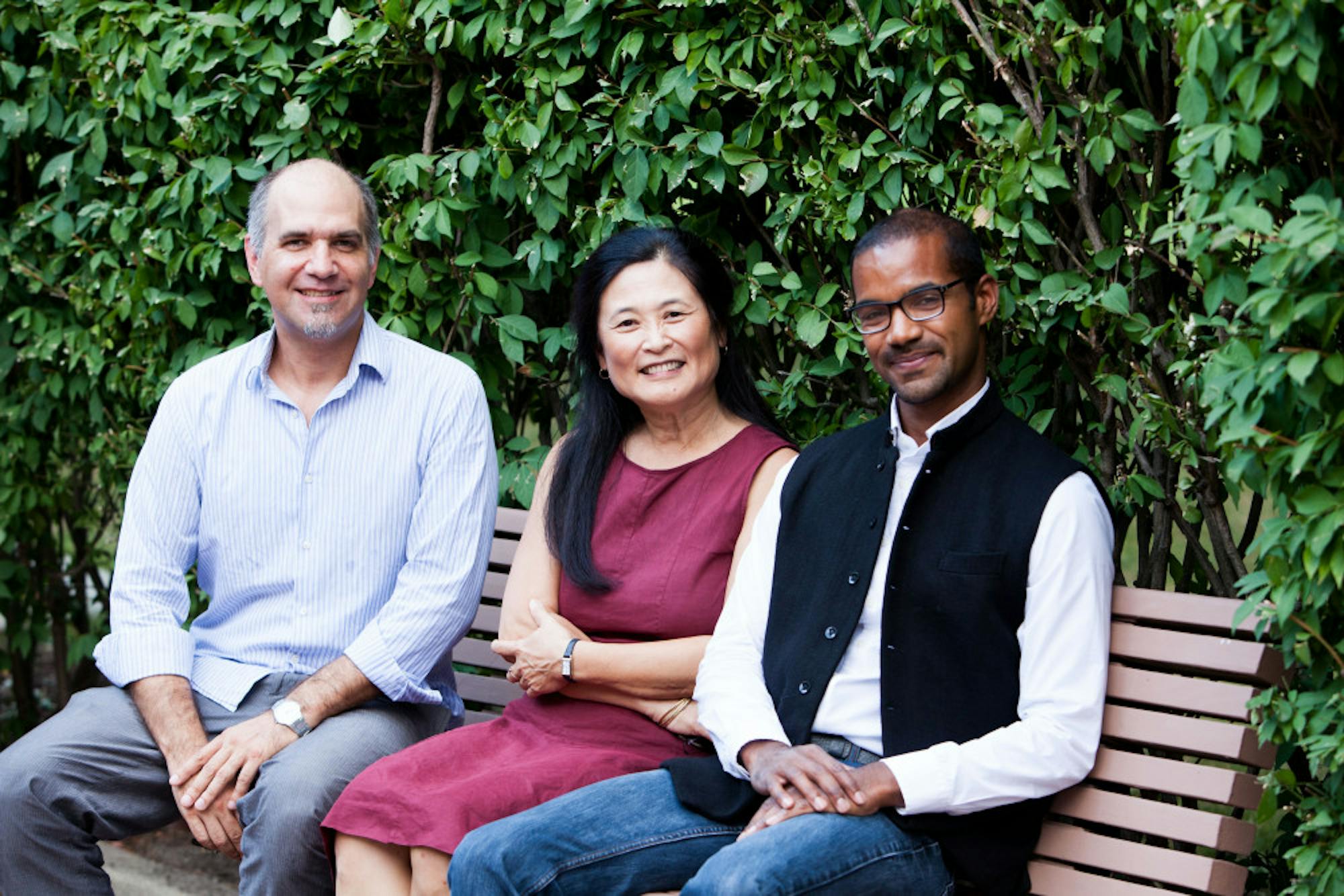Starting in September 2016, the Center for the Humanities at Tufts began to host a series of Mellon Sawyer Seminars in Comparative Humanities. These twice-monthly seminars brought visiting scholars to campus to give lectures and lead discussions among faculty, postdoctoral fellows and graduate students about the scholars' works.
Lisa Lowe, director of the Center for the Humanities and distinguished professor of English, organized these seminars with the help of faculty members Kris Manjapra, associate professor of history, and Kamran Rastegar, associate professor of Arabic and comparative literature.
Funded by The Andrew W. Mellon Foundation, the seminars hosted speakers on topics ranging from ‘The Social Life of DNA’ to ‘Plantation Dispossession and the Futures of Black Embodiment.' Most famously, the acclaimed theorist Judith Butler delivered a lecture on ‘The Politics of Human Rights.’
According to Manjapra, the seminar series hopes to look critically at the very foundation of the humanities by questioning categories of comparison and the concept of humanity itself.
“We unsettled this category through the study of colonialism, of race and racialization, gender, feminist and post-colonial perspectives; those are ways in which the study of the human has been destabilized in the humanities. To study the humanities means to think critically about the category of the human, it means to unsettle and re-imagine how we think of human,” he said.
The seminars seek to create a space within the study of humanities for new questions to be unpacked, according to Manjapra.
“Tufts University is a very exciting center and hub in the area of Boston and New England for this kind of inquiry," Manjapra said. "Not only was it bringing new questions about the humanities, but it was also a project of exposing the innovative and interdisciplinary scholarship already here on campus.”
Manjapra said that the seminar series presents an opportunity for collaboration within the humanities at Tufts in the same way that interdisciplinary departments on campus such as Consortium of Studies in Race, Colonialism and Diaspora (RCD) already do.
Speaking to this, Lowe cited the nature of humanities to focus on a single region or conceptual tradition as opposed to considering intersections or ideas of exchanges and encounters.
“Cultures are not separate or boundless or autonomous but are interconnected over the years," Lowe said. "We need interdisciplinary study to frame these new ways of thinking so that we’re not simply thinking of history or another discipline but doing it together.”
She added that this allows for the individual person, society or culture to be studied using global frameworks that elucidate long-standing connections which can be built upon or learnt from in turn.
Also central to the project’s aims of rethinking the course of the study of humanities was reconsidering archives as parameters of knowledge production.
"The archive is reading traditional sources in a new way or constituting new archives that haven’t been recorded before, like family archives, sub-cultural archives and even dance, performance, music, artwork … or how the body might be an archive,” Lowe said.
Echoing this sentiment, rising junior and frequent seminar attendee Ria Mazumdar said the seminars taught her about the continued relevance of history in the present day.
“This series has indicated the contemporary relevance of many issues that are seen as 'historical,' such as slavery. This is tremendously important because we ought [to] situate ourselves in a historical context without losing sight of the fact that oppressive forces and historical structures have not vanished. We must grapple with them, and must not shy away from very difficult questions," Mazumdarsaid.
According to Mazumdar, the interdisciplinary nature of the seminars also helped draw in all kinds of students.
“During the Judith Butler talk, I saw several students majoring in subjects ranging from philosophy to political science to psychology," she said. "The humanities, and the critical questions that accompany such studies, apply directly to our lives and our academics, regardless of who we are. I hope that the series can spark more discussion and dialogue on the Tufts campus, and bring together the 'non-humanities people' to talk about hugely relevant topics.”
In the future, the seminars will no longer be funded by the previous grant and will happen less frequently.
Lowe said she hopes that in the upcoming year, the series can continue with a bimonthly discussion group and with additional visiting scholars under the direction of the Center for Humanities.
“What we really hope to do following this year is to continue the conversation and bring in additional visitors and using the same format,” Lowe said.
Mellon Sawyer Seminars push new way of thinking about the humanities

Director of the colonialism minor, Dr. Kris Manjapra, right, Dr. Lisa Lowe, an English professor, middle, and Dr. Kamran Rastegar, professor of German, Russian and Asian Language and Literature, pose for a picture on August 26, 2014 on the Academic Quad.





